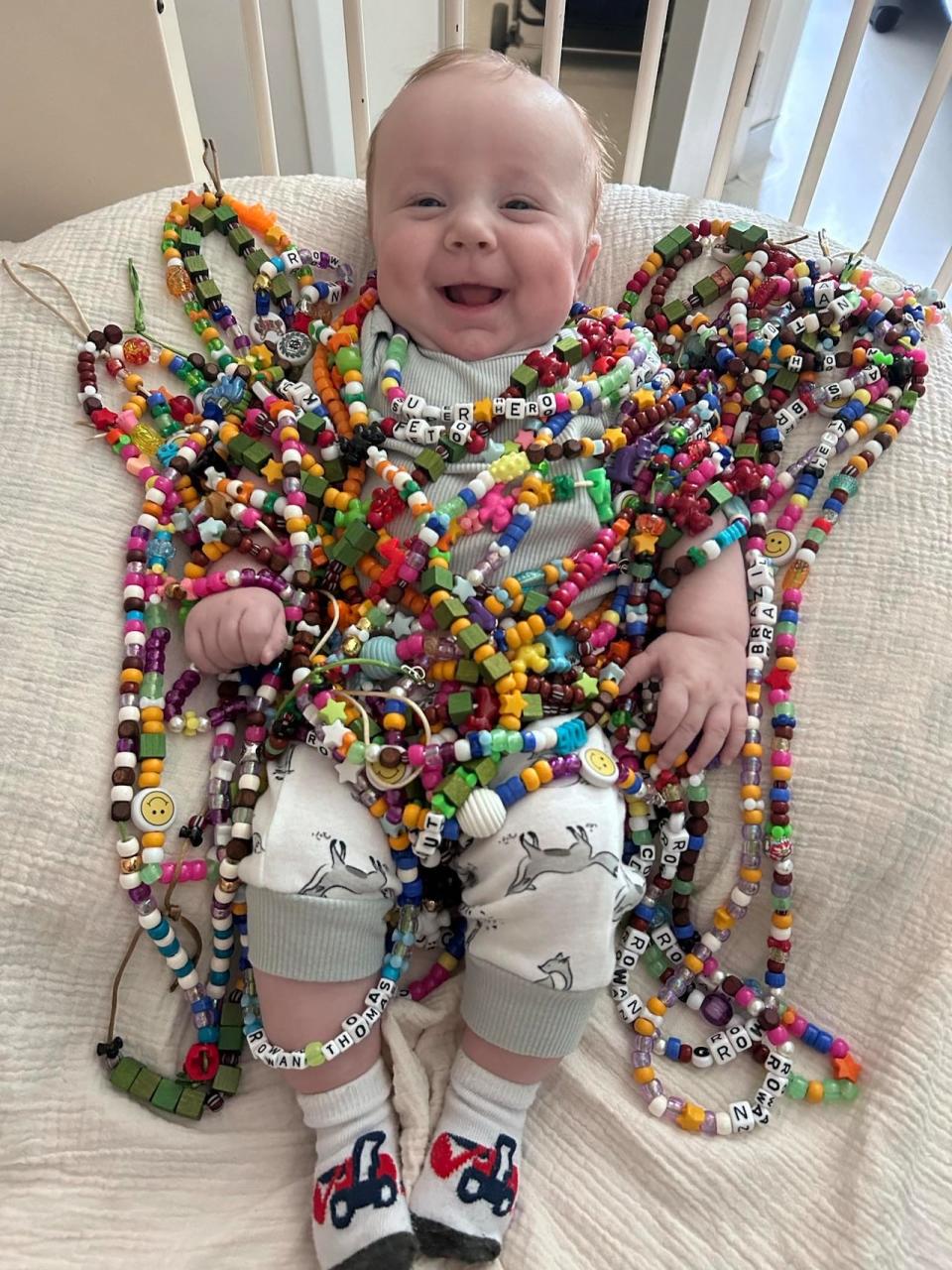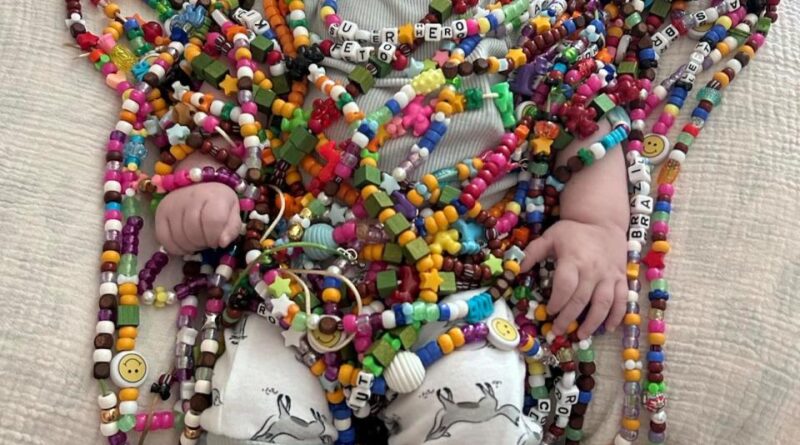Child with rare genetic condition is happy despite all he has endured, says his mum


SickKids has an active bead program that provides one bead to a patient for every procedure they undergo during their treatment. Rowan Brazil has hundreds. (Contributed by Mary Rankin)
A baby born with a rare genetic condition that required long-term surgery is back in Newfoundland and Labrador, and his parents say they are amazed at what he endured even before he was born. I achieved his six-month success.
While still in the womb, Rowan Brazil was diagnosed with a congenital diaphragmatic hernia, a birth defect that occurs during fetal development when a gap in the diaphragm allows organs such as the intestines to pass through. , stomach and liver upwards in the chest cavity.
His parents, Tiffany Brazil and Stephanie Mercer, moved to Toronto so he could have reconstructive surgery and was born on Jan. 30. After several months of treatment, their family returned home to South River, NL, in June.
“He’s the happiest little guy. He has the best smile and he’s really cheeky. Like, I think he’s going to be someone with problems,” said Brazil, laughing.
The only time she cries is when she’s in pain, like when her feeding tube is bothering her, her diaper needs changing or her teeth are bothering her, she said.
Both Mercer and Brazil said they were in awe of their son.
When he was born, Mercer said doctors spent hours reading his vitals to see how he would survive.
“Now to look at the little boy we have here who is playing with his toys and walking on his toes and swimming…. [think about] every opportunity he’s been given,” Mercer said.
She said they were told about Rowan’s diagnosis at the 20-week ultrasound and up until then, everything was going well.
“All of our first ultrasounds were good. We had no reason to suspect that anything was wrong or gone,” said Mercer.
The radiologist told them what the defect was, suggesting that their baby would not survive, she said.
Brazil said they went home and spent a week sleeping, crying and looking up everything they could about the disease. They decided to get a second opinion.
From there, she said they moved to Toronto before Rowan was born so she could undergo surgery at the Ontario Fetal Center at Mount Sinai Hospital.
“They said if I went ahead with the baby procedure, they would have a 45 percent chance. [of] survival, from zero to 15 percent,” said Brazil.
She was 27 weeks pregnant when the first procedure was performed.
127 days in the hospital
Mercer said that even when he was operated on before he was born, they knew he would have to be intubated after birth and put on a ventilator.
“It was just ‘cross our fingers and hope for the best,'” Mercer said, adding that Rowan spent 127 days at the Toronto Hospital for Sick Children, Mercer said.
“Of the 127 days, the first 17 days he spent on a ventilator. So those days were longer,” said Brazil, who said the family was able to return home on 11 June.
Brazil said that during his trip home Rowan contracted COVID-19, which is more difficult for him because his lungs already have to work harder to breathe.
Mercer said they still have a long road ahead of them, explaining that Rowan’s surgeries brought the organs closer to where they should be, and repaired his diaphragm with a patch.
“He will be monitored as he grows. Since his defect was very large and the patch is very large, there is a risk that as he grows, the patch may come off.”
That could mean Rowan will need more surgery, either to repair the patch or replace it.
Mercer added that he is now unable to swallow food and his food and medication must be given to him through his tube.
“That’s definitely an ongoing battle,” he said.
Download our the free CBC News app to sign up for CBC Newfoundland and Labrador alerts. Click here to visit our landing page.
#Child #rare #genetic #condition #happy #endured #mum
